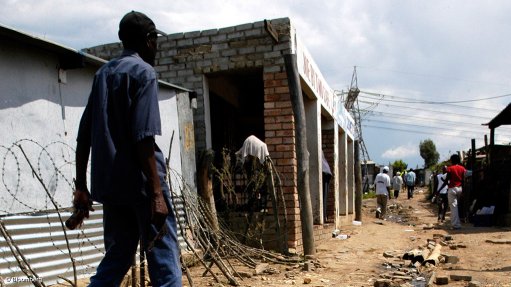
Photo by: Bloomberg
With gold mining no longer the major economic driver that it once was for Gauteng, the future of the province’s economic growth lies in the development of the township economy, Gauteng Finance MEC Jacob Mamabolo said on November 24.
“Gold is gone and it is not coming back. The Gauteng economy is going to grow in the townships. The opportunity for economic growth lies in turning around the township economy,” he said during a presentation of Gauteng’s 2022 Medium-Term Budget Policy Statement, defining it as an untapped resource.
He noted that the signing of the Township Economy Development Act (TEDA) into law in April was an important milestone for the people of Gauteng.
“Through the implementation of this Act, we are now at a better position to unleash the full, untapped potential of the township economy. This will in turn significantly increase Gauteng’s share of the national gross domestic product,” Mamabolo said.
He noted that the TEDA supported efforts towards fundamentally changing the structure of the township economy by promoting local production, the development of small- to medium-sized enterprises (SMEs), cooperatives and other township businesses.
He said plans were afoot to expand infrastructure service delivery, which would require the employment of 80 000 people over the next 12 months from Evaton, Westbury, Soweto and Soshanguve to build residential fill-in units in townships.
Mamabolo noted that, during October, the Gauteng Enterprise Propeller, the Industrial Development Corporation, the SA SME Fund and Standard Bank launched the SMME Crisis Partnership Fund, which immediately made R850-million debt funding available to assist township businesses to rebuild and grow.
“This is a game changer, as most township businesses are either unable to access or do not qualify for funding from the formal banking sector,” he said.
He highlighted that some of the urgent tasks that the provincial government was implementing in relation to the TEDA included refurbishing and supporting 20 000 stores in townships, as well as the completion of 7 757 fibre installations to create cloud zones for township use.
Moreover, 13 taxi economy zones were planned, which were projected to stimulate the creation of 4 758 jobs.
He said that further support would be given to 9 000 subsistence farmers in upscaling their farms, while 10 000 ha of agricultural land would be released for use by small farmers.